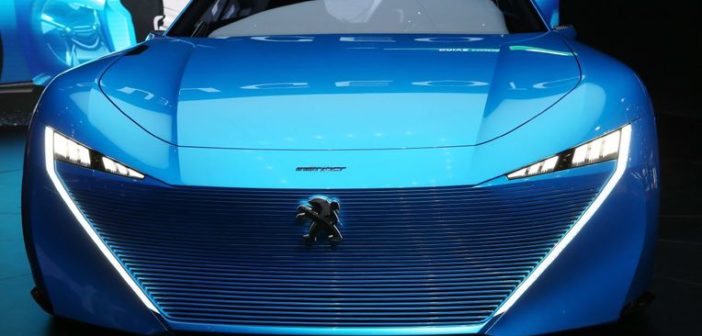The Peugeot Instinct concept is a look at the future of autonomy through Peugeot’s rose-tinted spectacles. With four drive modes — two for varying degrees of autonomy and two for ‘normal’ driving — the concept aims to be a vehicle that offers drivers the freedom to choose.
“Peugeot Instinct concept is the first self-driving concept that keeps driving pleasure in mind,” says Peugeot head of design Gilles Vidal. “Designing a self-driving car is an exciting challenge. There are two opposing concepts – active driving and autonomous mode – and our job is to bring them together, with one clear objective: maintaining the enjoyment and arousing emotions.”
The decision to showcase an autonomous car that also caters to driving enthusiasts is not new. Carmakers are currently wavering between offering self-driving solutions and appealing to driving enjoyment – which is what many companies having been touting as their tag lines for years.
Save for the active aerodynamic features on the exterior design – the front grille surround extends out to channel air through while a small decklid spoiler extends at the rear to increase downforce – there’s nothing particularly innovative about the concept car’s shooting brake, two-box volume.
What is innovative, however, is the car’s interior design, and the technology within. Developed in collaboration with electronics giant Samsung, the Peugeot Instinct concept makes use of the company’s Artik Cloud platform, which syncs with the user’s devices. This enables the car to learn its user’s lifestyle and preconfigure settings for the driving modes, seat, interface, ambient lighting and audio.
The interior utilizes tactile materials to enhance the feeling of hi-tech luxury communicated by its exterior design. When in autonomous mode, the compact steering wheel and toggle switch panel fold into the dashboard and the accelerator pedal folds back into the pedal unit to maximize space.
Inspired by aeronautic design, the seats also adapt, transforming the cabin into a comfortable lounge space. The seat base, seat back and headrest are all treated individually, allowing the occupant to select the position most suited to them — horizontal if they want to rest, upright to drive, or in-between to watch a film or work.
In both ‘Drive’ and ‘Autonomous’ modes, the driver retains control over the vehicle via the i-Device, which sits next to the 9.7-inch screen in the center console. The i-Device enables the driver to switch between modes so they can take action when needed.
“We are creating new forms of driving pleasure,” says head of Peugeot concept cars Matthias Hossann. “These may come from the interfaces, the architecture or the styling. There is no reason why a self-driving car should be dull to look at or to experience.”




